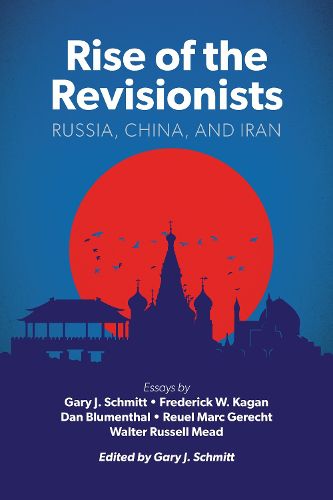Readings Newsletter
Become a Readings Member to make your shopping experience even easier.
Sign in or sign up for free!
You’re not far away from qualifying for FREE standard shipping within Australia
You’ve qualified for FREE standard shipping within Australia
The cart is loading…






Rise of the Revisionists: Russia, China, and Iran is a five-essay volume, edited by the American Enterprise Institute’s Gary J. Schmitt, that examines the three rising powers as they challenge the US and the global order in three critical regions of the world. Essays by the American Enterprise Institute’s Frederick W. Kagan on Russia and Dan Blumenthal on China and by Foundation for the Defense of Democracies Senior Fellow Reuel Marc Gerecht on Iran analyze the historical roots of each country’s ambitions, their strategic goals, and possible US policies for meeting the challenges and threats posed by each. Those essays are framed by an introduction by Gary Schmitt that places the tests facing the US foreign policy in a broader strategic framework and by a concluding essay by Hudson Institute Scholar Walter Russell Mead that looks to the Father of History, Thucydides, to provide insight into the complex set of domestic and foreign realities that shape American statecraft in this most challenging time.
$9.00 standard shipping within Australia
FREE standard shipping within Australia for orders over $100.00
Express & International shipping calculated at checkout
Rise of the Revisionists: Russia, China, and Iran is a five-essay volume, edited by the American Enterprise Institute’s Gary J. Schmitt, that examines the three rising powers as they challenge the US and the global order in three critical regions of the world. Essays by the American Enterprise Institute’s Frederick W. Kagan on Russia and Dan Blumenthal on China and by Foundation for the Defense of Democracies Senior Fellow Reuel Marc Gerecht on Iran analyze the historical roots of each country’s ambitions, their strategic goals, and possible US policies for meeting the challenges and threats posed by each. Those essays are framed by an introduction by Gary Schmitt that places the tests facing the US foreign policy in a broader strategic framework and by a concluding essay by Hudson Institute Scholar Walter Russell Mead that looks to the Father of History, Thucydides, to provide insight into the complex set of domestic and foreign realities that shape American statecraft in this most challenging time.